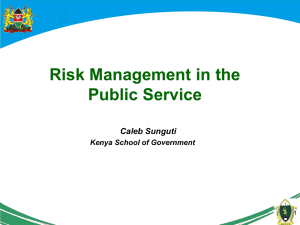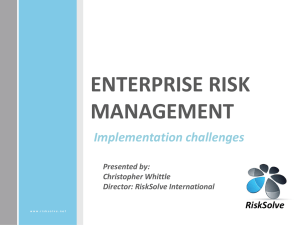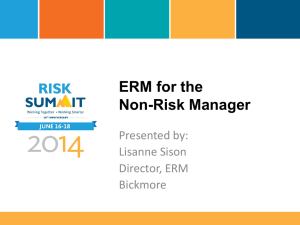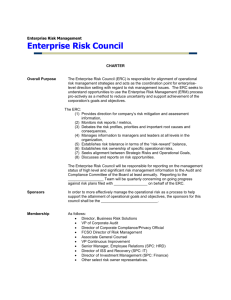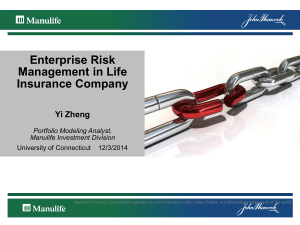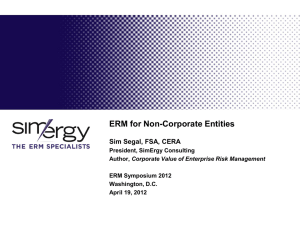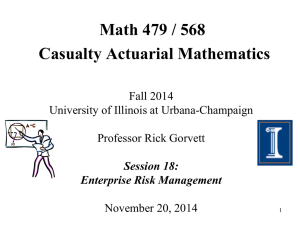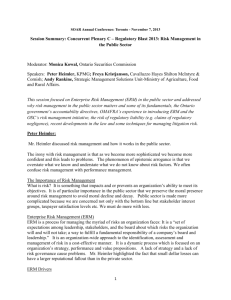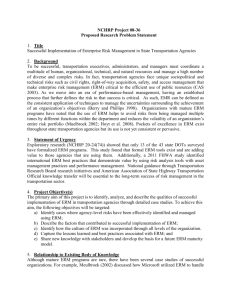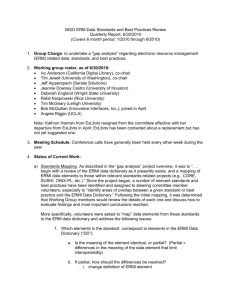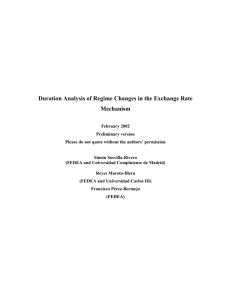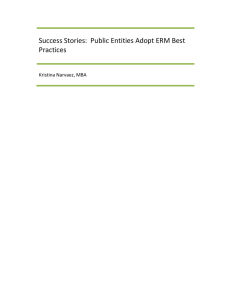Course Descriptions
advertisement
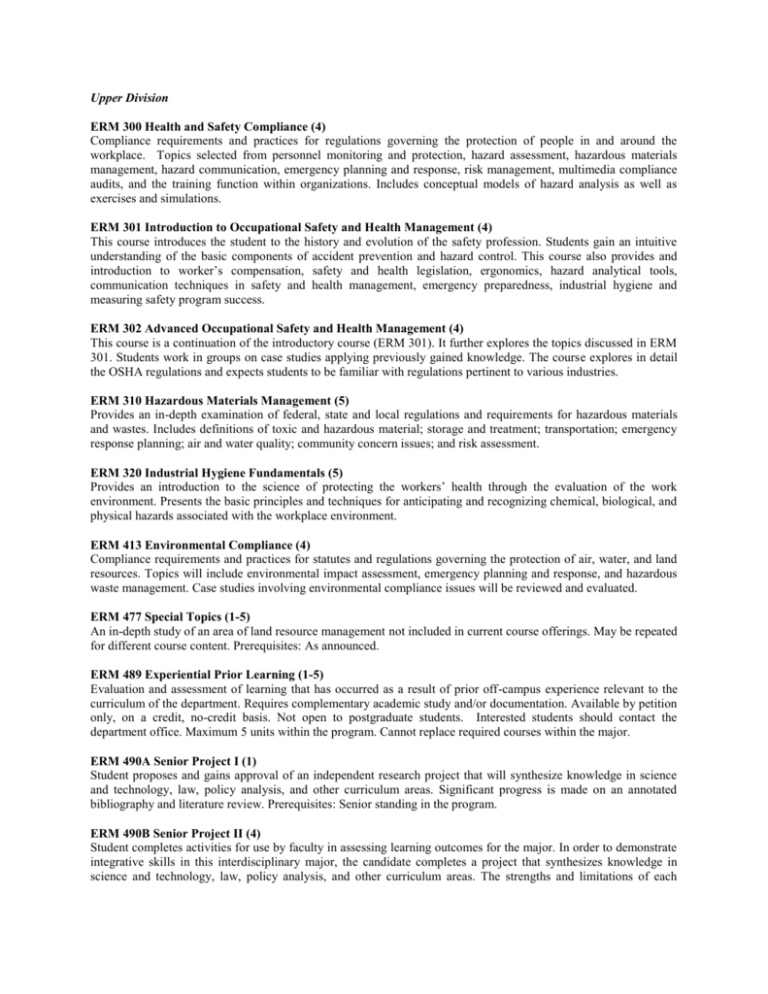
Upper Division ERM 300 Health and Safety Compliance (4) Compliance requirements and practices for regulations governing the protection of people in and around the workplace. Topics selected from personnel monitoring and protection, hazard assessment, hazardous materials management, hazard communication, emergency planning and response, risk management, multimedia compliance audits, and the training function within organizations. Includes conceptual models of hazard analysis as well as exercises and simulations. ERM 301 Introduction to Occupational Safety and Health Management (4) This course introduces the student to the history and evolution of the safety profession. Students gain an intuitive understanding of the basic components of accident prevention and hazard control. This course also provides and introduction to worker’s compensation, safety and health legislation, ergonomics, hazard analytical tools, communication techniques in safety and health management, emergency preparedness, industrial hygiene and measuring safety program success. ERM 302 Advanced Occupational Safety and Health Management (4) This course is a continuation of the introductory course (ERM 301). It further explores the topics discussed in ERM 301. Students work in groups on case studies applying previously gained knowledge. The course explores in detail the OSHA regulations and expects students to be familiar with regulations pertinent to various industries. ERM 310 Hazardous Materials Management (5) Provides an in-depth examination of federal, state and local regulations and requirements for hazardous materials and wastes. Includes definitions of toxic and hazardous material; storage and treatment; transportation; emergency response planning; air and water quality; community concern issues; and risk assessment. ERM 320 Industrial Hygiene Fundamentals (5) Provides an introduction to the science of protecting the workers’ health through the evaluation of the work environment. Presents the basic principles and techniques for anticipating and recognizing chemical, biological, and physical hazards associated with the workplace environment. ERM 413 Environmental Compliance (4) Compliance requirements and practices for statutes and regulations governing the protection of air, water, and land resources. Topics will include environmental impact assessment, emergency planning and response, and hazardous waste management. Case studies involving environmental compliance issues will be reviewed and evaluated. ERM 477 Special Topics (1-5) An in-depth study of an area of land resource management not included in current course offerings. May be repeated for different course content. Prerequisites: As announced. ERM 489 Experiential Prior Learning (1-5) Evaluation and assessment of learning that has occurred as a result of prior off-campus experience relevant to the curriculum of the department. Requires complementary academic study and/or documentation. Available by petition only, on a credit, no-credit basis. Not open to postgraduate students. Interested students should contact the department office. Maximum 5 units within the program. Cannot replace required courses within the major. ERM 490A Senior Project I (1) Student proposes and gains approval of an independent research project that will synthesize knowledge in science and technology, law, policy analysis, and other curriculum areas. Significant progress is made on an annotated bibliography and literature review. Prerequisites: Senior standing in the program. ERM 490B Senior Project II (4) Student completes activities for use by faculty in assessing learning outcomes for the major. In order to demonstrate integrative skills in this interdisciplinary major, the candidate completes a project that synthesizes knowledge in science and technology, law, policy analysis, and other curriculum areas. The strengths and limitations of each paradigm are recognized and integrated into demonstration of the thesis. Prerequisites: ERM 490A and Senior standing. ERM 496 Internship in Environmental Resource Management (1-5) Internships may be arranged with various businesses or agencies. Supervision of the internship is shared by the field supervisor and course instructor. The focus of the internship must be to develop and/or apply competencies pertinent to careers in environmental policy and compliance. Offered on a credit, no-credit basis. The instructor will determine units of credit and their application. ERM 497 Cooperative Education (1-5) The Cooperative Education program offers a sponsored learning experience in a work setting, integrated with a field analysis seminar. The field experience is contracted by the Cooperative Education office on an individual basis, subject to approval by the department. The field experience, including the seminar and reading assignments, is supervised by the cooperative education coordinator and the faculty liaison (or course instructor), working with the field supervisor. Students are expected to enroll in the course for at least two quarters. The determination of course credits, evaluation and grading are the responsibility of the department faculty. Offered on a credit, no-credit basis only. Department will determine application of credit. ERM 499 Individual Study (1-5) Consent of department required.

